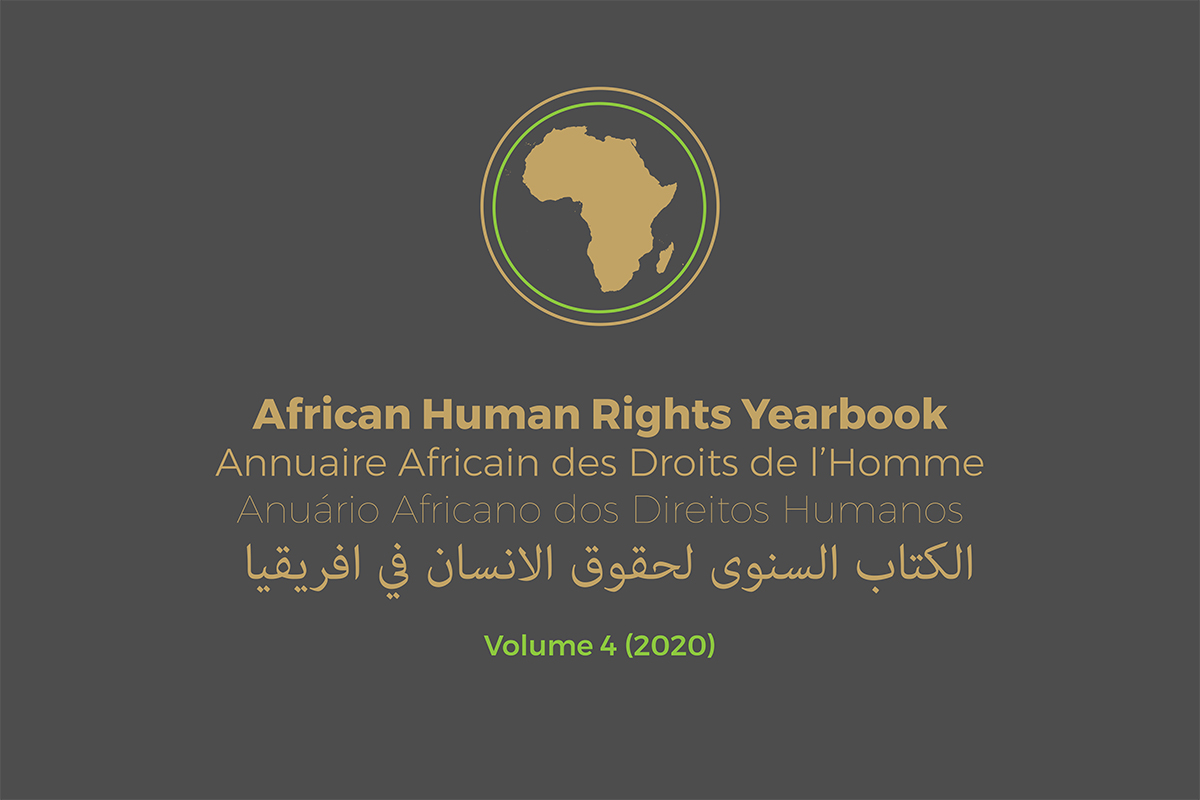Background to the Yearbook
The African Court on Human and Peoples’ Rights, the African Commission on Human and Peoples’ Rights, and the African Committee of Experts on the Rights and Welfare of the Child are pleased to announce the call for papers for the Fourth Volume of the African Human Rights Yearbook (AHRY). The First Volume, which was published at the end of 2017, comprised 17 articles while the Second Volume contained a total of 23 contributions. It was published in early 2019. The Third Volume, published end of 2019, comprised 25 contributions. This joint publication, which contains contributions in English, French and Portuguese has been initiated in the framework of the complementarity relationships among the three institutions. For this Fourth Volume, we also invite abstracts in Arabic.
Invitation for Contributions
We are inviting abstracts for papers and case discussions that will propose ground-breaking academic-style contributions to the human rights discourse in Africa. Although the contributions are expected to take a continental approach to the issues they cover, country or sub-regional level case studies that are designed in the light of the overall African human rights system will be of great relevance. In so far as methodology is concerned, papers adopting multidisciplinary and empirical approaches are highly encouraged. Submissions in three categories are invited.
A. Articles focused on aspects of the African human rights system/ African Union human rights standards
In this section, the call is for articles about the African human rights system or African Union human rights standards, including domestic application and interpretation.
B. Articles related to the theme of the Year 2020: “Silencing the Guns: Creating conducive conditions for Africa’s development”
In this section, we invite articles that focus on the African Union’s theme of the year, which is for 2020, “Silencing the Guns: Creating conducive conditions for Africa’s development”. The proposed abstracts should raise questions that are relevant to the theme of the year with a focus on the law of the African Union pertaining mainly to human rights and development.
C. Case Commentaries
In view of the need to capitalize on the growing jurisprudence of the three organs, this section of the Yearbook aims to garner critical propositions to improve case law. Commentaries may be on a single decision, or on the case law of one of the three organs, separately, or provide perspectives on the case law of the three organs, jointly (cross-cutting jurisprudential issues, complementarity, etc.).
Submission of Abstracts and Timetable
Abstracts should be of no more than 650 words to be submitted together with a short résumé of the author’s professional qualifications and position. Abstracts should set out: the title of the paper, a short description of the topic to be addressed, the methodological approach taken, a brief overview of the issues to be explored; and the anticipated findings or insights.
Abstracts should be submitted before or by 15 April 2020 as email attachments to:
- Prof Frans Viljoen, Director, Centre for Human Rights, University of Pretoria
frans.viljoen@up.ac.za - Copying Mr Trésor Makunya
tresor.makunya@up.ac.za and - Dr Robert Eno, Registrar of the African Court
robert.eno@african-court.org - copying Dr Horace Adjolohoun, Principal Legal Officer at the African Court
horace.adjolohoun@african-court.org - copying Dr Mwiza Jo Nkhata, Principal Legal Officer at the African Court
mwiza.nkhata@african-court.org
Any questions on this call for papers should be directed to the addresses given above.
The selection panel will consider the proposals and inform only the selected authors before or by 30 April 2020. On acceptance of a proposal by the selection panel, the authors will be invited to submit a full draft paper together with an abstract of 200 words by 15 August 2020. The papers will undergo a double-blind peer-review process. Upon review, the authors will receive comments, which they will be expected to incorporate and return the final paper by 15 October 2020.
Accepted papers will be published in the fourth volume of the Yearbook, which is expected to appear in November 2020.
Submission Guidelines
- The submission must be original and not have already been published or submitted elsewhere.
- Articles should be between 8 000 and 10 000 words (including footnotes) in length.
- Case comments should be between 5 000 and 8 000 words (including footnotes) in length and should include web links to cases cited.
- Contributions may be submitted in Arabic, English, French or Portuguese; and should be edited for language before submission.
- Use UK English for papers submitted in English.
- Please adhere to the Pretoria University Law Press (PULP) style guidelines,
www.pulp.up.ac.za/images/files/publish_with_pulp/PULP_STYLE_GUIDELINES.pdf
Remuneration
Contributions to the African Human Rights Yearbook are not remunerated. However, in recognition of their intellectual work and the value it adds to the Yearbook, authors of finally accepted papers will be added to a database of thematic experts of the African Court, the African Commission, and the Children’s Committee. In addition, they will be involved in various relevant activities and events organized by the three institutions either separately or jointly.
African Human Rights Yearbook
Volume 4 (2020)
